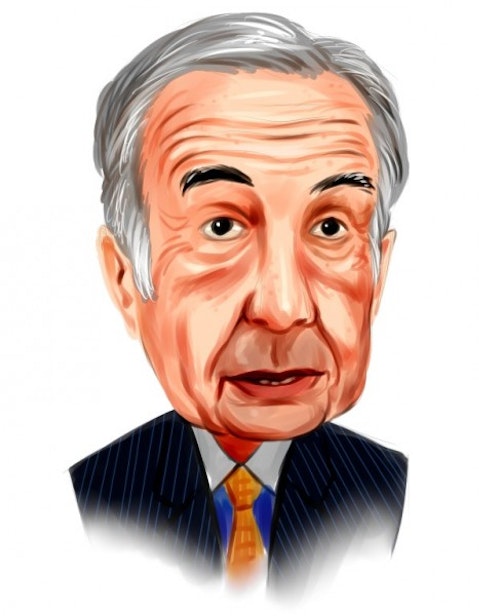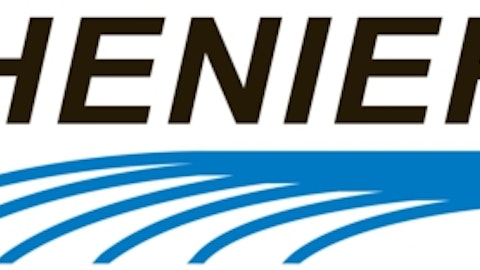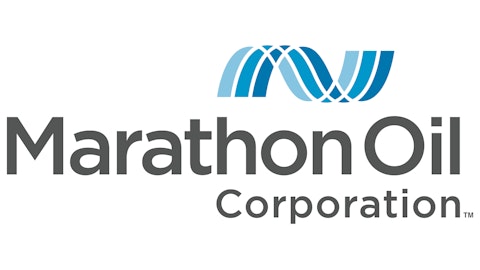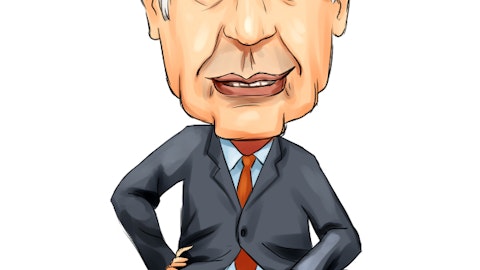Although Chesapeake Energy Corporation (NYSE:CHK) has endured a rough two-year period that has seen its shares under-perform the broader market by a significant margin, the company is widely regarded as one of the mid-continent’s stronger natural gas players. Its relative strength has certainly endeared it to activist investor Carl Icahn: The stock maven’s Icahn Enterprises LP (NASDAQ:IEP) now owns about 10 percent of Chesapeake Energy Corporation (NYSE:CHK)’s total share float and does not seem to be opposed to adding to its holdings.
Since substantially increasing his stake in Chesapeake in 2012, Icahn has had a major influence on the decisions of the company’s board. Among other things, it appears that he had a hand in orchestrating the early-April departure of Chesapeake’s CEO. In the process, Chesapeake has secured some high-profile analyst upgrades and looks to be repairing much of the technical damage that has been done to its stock price. Going forward, investors who wish to play the natural gas market for a price rebound may wish to take a closer look at Chesapeake.
Chesapeake, Icahn Enterprises and the Competition
While Chesapeake looks like a legitimate investment opportunity and offers a clear pure play on the natural gas market, some investors may prefer the diversified portfolio of Carl Icahn’s firm. As such, a comparison between Chesapeake and two other prominent natural gas drilling firms may be in order. Among all of its competitors, Anadarko Petroleum Corporation (NYSE:APC) and BP plc (ADR) (NYSE:BP) stand out as a solid candidates. After all, all three of these companies enjoy wide-ranging exposure to a number of lucrative mid-continent shale and conventional gas deposits.
Chesapeake Energy Corporation (NYSE:CHK) is smaller than its two competitors. Its market capitalization of $14.3 billion is about one-third the size of Anadarko Petroleum Corporation (NYSE:APC)’s market cap and about 90 percent smaller than BP plc (ADR) (NYSE:BP)’s share value. The company is also less profitable than its larger rivals: In 2012, it reported a loss of about $854 million on revenues of around $13.3 billion. For comparison, Anadarko Petroleum Corporation (NYSE:APC) reported a profit of $689 million on revenues of about $13.7 billion, and BP plc (ADR) (NYSE:BP) took in about $23 billion on revenues of nearly $375 billion. Of course, it is important to remember that BP’s significant downstream presence and global footprint enables it to pull revenue from end users as well as refining companies.
Chesapeake also has a bit of a debt problem. The company has just $33 million in cash and nearly $13.5 billion in long-term debt. Although Anadarko has nearly $15 billion in long-term debt, its cash reserve of $3.7 billion provides adequate balance. Meanwhile, BP has debts of about $46.5 billion on cash reserves of $28.3 billion.
Icahn’s Stake
In late 2012, the news that Icahn Enterprises LP (NASDAQ:IEP) had taken a 9 percent stake in Chesapeake caught many market-watchers off-guard. This is primarily due to the fact that the activist investor had sold out of a previous position in the company after earning a cool $500 million on an asset-sale bet. It appeared that Mr. Icahn had unfinished business with the energy firm’s management team.
Indeed, Icahn Enterprises LP (NASDAQ:IEP)’s latest foray into Chesapeake has already produced a major leadership change. He has also indicated that he lacks faith in the firm’s board and has taken the unusual step of issuing an impassioned, highly personal letter to the company’s rank-and-file shareholders in an effort to win them over to his side. Although it remains to be seen whether this will produce further changes at the company, it suggests that Icahn Enterprises LP (NASDAQ:IEP) is not going to be a passive investor.
Chesapeake’s Advantages
Although Chesapeake’s financial situation leaves something to be desired, the company benefits from a diverse portfolio of stable, productive assets and a strong foothold in a crucial geographical region. Since it is relatively close to the Gulf Coast ports that will serve as hubs for future gas-exporting activities, the company will enjoy lower downstream transportation costs than rivals that operate exclusively in Canada and the north-central United States.
Meanwhile, the firm’s recent leadership shakeups are sure to restore rank-and-file investors’ badly shaken faith in the company. As its most visible investor, Carl Icahn will have a big say in how this plays out. Finally, Chesapeake’s stock price appears to have turned the corner. It looks undervalued relative to many of its closest competitors. A period of boardroom stability looks likely to convince investors and fund managers to come in from the cold.
Long-Term Outlook: Invest or Stay Away?
On balance, Chesapeake looks like a solid investment for anyone who wishes to gain exposure to the natural gas market. However, it is not without its problems. Those who do not feel particularly strongly about the short-term future of the American natural gas industry may wish to “hedge” their Chesapeake investment with a long position in Icahn Enterprises LP (NASDAQ:IEP). With a solid dividend yield and a growing asset portfolio, the company offers exposure to a number of growing industries without presenting undue risk. After all, Chesapeake’s long-term growth will benefit Icahn Enterprises for as long as the company holds its stake.
The article Icahn’s Big Stake Could Bode Well for Regular Investors originally appeared on Fool.com and is written by Mike Thiessen.
Mike Thiessen has no position in any stocks mentioned. The Motley Fool has the following options: Long Jan 2014 $20 Calls on Chesapeake Energy, Long Jan 2014 $30 Calls on Chesapeake Energy, and Short Jan 2014 $15 Puts on Chesapeake Energy. Mike is a member of The Motley Fool Blog Network — entries represent the personal opinion of the blogger and are not formally edited.
Copyright © 1995 – 2013 The Motley Fool, LLC. All rights reserved. The Motley Fool has a disclosure policy.





